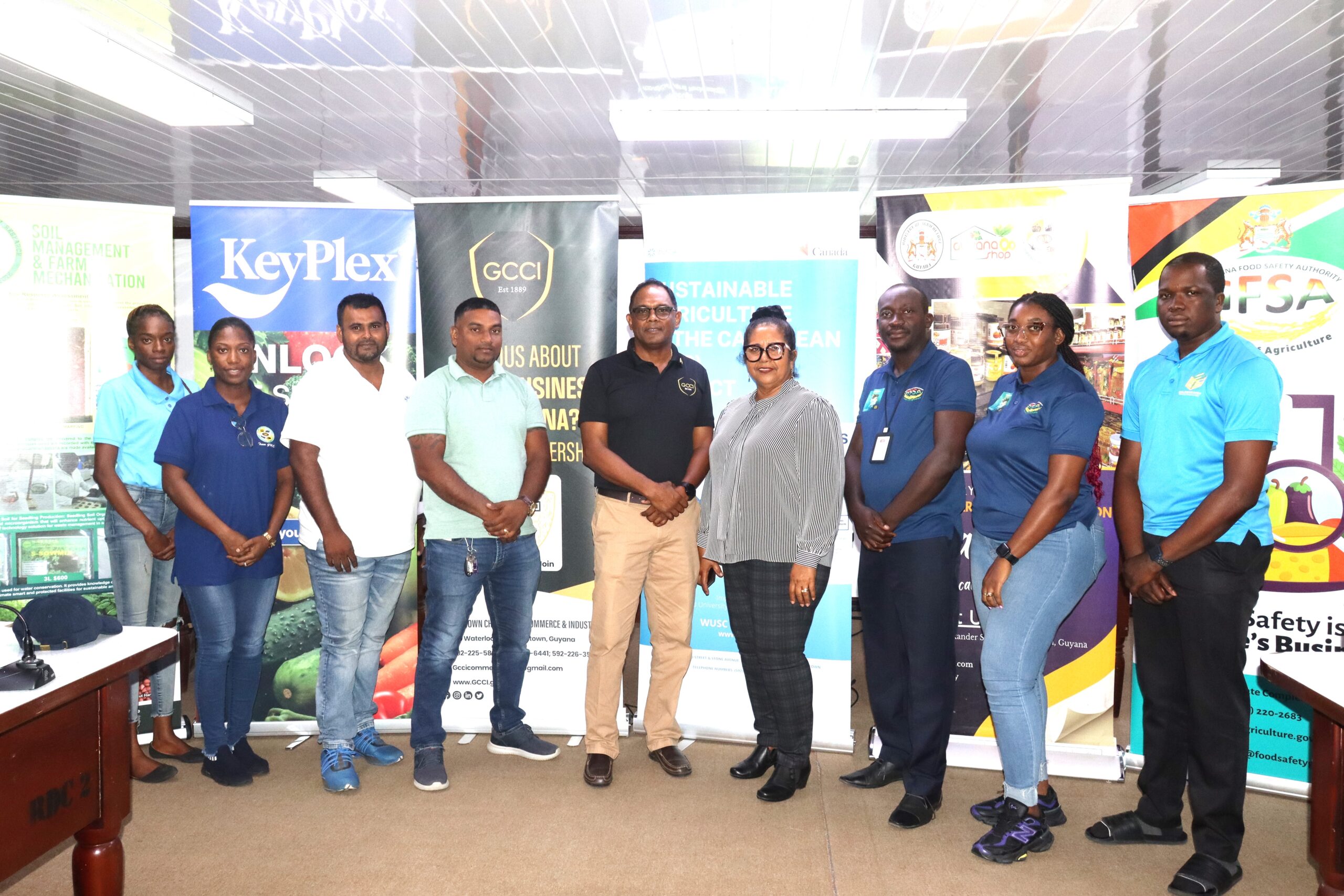Supporting the development of the agriculture sector and promoting value-added products: GCCI’s capacity-building sessions benefit farmers across the country
With a vision of Guyana becoming the breadbasket of the Caribbean and the goal of the country contributing to a 25 percent decrease in the CARICOM food import bill by 2025, the agriculture sector continues to play a crucial role in not just local development, but the Caribbean region. The Georgetown Chamber of Commerce and Industry has over the years been a proponent of sustainable agricultural development, with the establishment of the Agriculture Committee and undertaking of capacity-building sessions across the country.
On October 24, the ‘Agriculture Capacity Building Workshop’ was held in the boardroom of the Regional Democratic Council Boardroom, in Anna Regina, Region Two, where over 20 farmers benefitted from training in ‘Farming as a business’, ‘Access to Finance’, ‘Access to Market’, ‘Good Agricultural Practices’, ‘Climate-smart innovations’, and ‘the importance of nutrients in agriculture.’
“This initiative is one that is aimed at improving and standardising agricultural practices in Guyana to ensure that the produce being provided to consumers are high-quality. Simultaneously, our objective is to inculcate an entrepreneurial mindset into all farmers, where they see their operations as a business, and implement practices such as record-keeping and the separation of finances. These practices are geared towards providing the opportunity for the business to grow and access capital from financial institutions, if needed,” stated Chairperson of the GCCI’s Agriculture Committee, Mr. Brian Edwards.
This project has been ongoing over the last two years, in partnership with the World University Services of Canada with funding from Global Affairs Canada. It is the first public-private partnership to see collaboration with a large number of government agencies through the Ministry of Agriculture, including the National Agricultural Research and Extension Institute, the Guyana Food Safety Authority, the New Guyana Marketing Corporation, the Pesticides and Toxic Chemicals Control Board, and the Small Business Bureau, as well as the Guyana Bank for Trade and Industry (GBTI). These organisations all have representatives at these activities who share information with participants and field queries that may arise.
Thus far in 2024, 550 farmers have benefited from this initiative, with a separate capacity-building programme for women farmers in Region Five being launched, which is aimed at providing them with skills to enter the agro-processing industry.
Regional Chairperson of Region Two, Mrs. Vilma De Silva, who was present for the outreach in Anna Regina, underscored the importance of these activities while urging farmers fully-utilise these opportunities. Mrs. De Dilva shared her testimonial on how participating in similar training activities by the partnering agencies led to her being one of the largest exporters of coconut water in Guyana.
She reflected on the origin of her business, disclosing that while her husband operated a farm, it was her desire for additional income that led her to enter the coconut processing business. “The same way some people are always on the lookout for the next upcoming entertainment activity or party, I was always looking out for these training activities,” she stated. Today, her business has expanded to include a significant market share of the coconut water industry, an accomplishment that she says would not have been possible without training.
The GCCI’s goal is for small farmers to develop their businesses so that they may also expand their operations and venture into value-added production in the agro-processing industry. The Chamber will continue its efforts to support this crucial sector through a result-driven and collaborative approach.
































